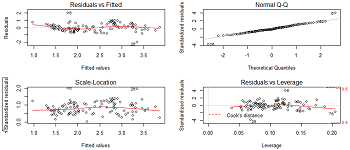Research Article
In recent decades, the issue of ecological footprint (EF) in the world has become a serious anxiety among environmental stakeholders. This anxiety is more in top tourism attracting countries. The purpose of this research is the performance of mixed and penalized effects models in predicting the value of the EF of tourism in the top eight countries of tourism destinations. The World Bank and Global Footprint Network databases have been used in this study. Penalized regression and MCMC models have been used to estimate the EF over the past 19 years (2000-2018). The findings of the research showed that the amount of ecological footprint in China, France and Italy is much higher than other countries. In addition, based on the results, a slight improvement in the performance of penalized models to linear regression was observed. The comparison of the models shows that in the Ridge and Elastic Net models, more indicators were selected than Lasso, but Lasso has a better predictive performance than other models on ecological footprint. Therefore, the use of penalized models is only slightly better than linear regression, but they provide the selection of appropriate indices for model parsimoniousness. The results showed that the penalized models are powerful tools that can provide a significant performance in the accuracy and prediction of the EF variable in tourism attracting countries.
Review
Farm digital tools: A systematic review of investments and environmental implications
Farm-level investment in digital tools is often viewed as a necessary part of the agroecological transition. However, its actual relevance remains unclear due to currently ambiguous definitions of farm investments in general and equipment investments in particular. We conducted a systematic review of the farm investment literature to characterize the different categories of digital tools investments seen and to determine how often the environment is considered in this field of research. A total of 131 articles met our eligibility criteria and were subject to further analysis. First, we found that research on farm investments has looked at general farm investments, investments in combined factors of production, and investments in specific factors of production. Second, we discovered that there are four main investment categories for farm equipment (including digital tools). Third, we noted that few studies have addressed the environmental implications of investing in digital tools. Our findings emphasize that, to facilitate the agroecological transition, it will be important to promote broader strategies that encourage farmers to invest in digital tools.
Commentary

Pages 417-419
Energy audit for biodiesel performance
The performance and emission characteristics of the biodiesel -- diesel mix have been assessed using the energy audit method. The goal of this commentary is to get familiar with the examination of the performance characteristics of a diesel engine fuelled with biodiesel blends using energy audit technique. An examination of heat flow, brake-specific energy consumption, friction power, and smoke has been conducted. Efficiency can be enhanced by implementing this strategy, resulting in savings of both time and energy.

Pages 376-378
Scope of biofuel certification is reviewed. It has been found that a biofuel certification is needed in the biofuels industry to authenticate biodiesel and its blends for use in diesel engines.In the world, a standard energy audit method is required to evaluate the feasibility of biodiesel blend as fuel and also harmonise the research of biodiesel as fuel. Leagal measures for biofuel certification is required. There are various obstacles and challenges for biofuel certification. Therefore, this paper addresses the legal measures, obstacles and challenges for biofuel certification.



 Ahmad Roumiani, Omid Akhgari
Ahmad Roumiani, Omid Akhgari

